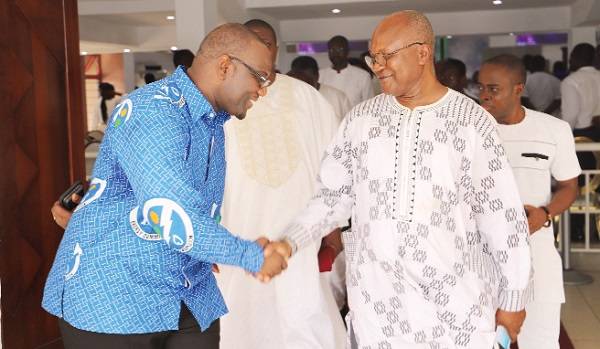According to Oscar Amonoo-Neizer, the Executive Secretary of the Energy Commission, the decision to forbid the importation of some secondhand electrical goods and renewable energy items will lessen the burden of power costs on consumers.
He clarified that the action was intended to make the nation a secure sanctuary for conducting business rather than deprive people of their daily food.
At the commission's 25th anniversary Thanksgiving service in Accra last Friday, Mr. Amonoo-Neizer said in an interview with the Daily Graphic that the commission will continue stakeholder engagement to make sure that all stakeholders were on the same page.
In a statement released on January 27, 2023, the Energy Commission stated that, in accordance with its authority under Act 541, it had compelled Parliament to enact 19 legislation to control the markets for electrical appliances and renewable energy projects.
It stated that the new rules were also intended to lower electricity demand and costs, protect the environment and the public's health from air pollution brought on by increased power generation, and shield consumers from making unnecessary purchases of appliances and paying excessively high electricity bills.
Other trade organizations, however, objected to the prohibition, claiming that it would force their members out of business.
Engagement
In response to the worries, Mr. Amonoo-Neizer stated that the commission will intensify interaction to align people with the advantages of the ban.
"In order for them to understand where we are coming from, we want to involve more of the affected stakeholders."
"The goal is to deliver more efficient appliances so we do not become a dumping site that will become a burden on customers, not to deny them their daily bread," he stated.
Anniversary
The commission, which was founded in December 1997, organized the service as a way to give gratitude to God for leading the commission during its work over the previous 25 years and to beg for further fortitude, wisdom, guidance, and divine protection in the years to come.
Committed employees, both those who are retired and those who are still employed, were recognized for their contributions to the expansion of the commission.
Achievements
In highlighting some of the commission's achievements, Mr. Amonoo-Neizer said that the Refrigerator Exchange Program, which promoted the return of used, old refrigerators in exchange for a discount on new ones, and the passage of the Renewable Energy Act, 2011 (Act 832), which gave the commission the authority to create and oversee a renewable energy market in Ghana, had both produced favorable outcomes.
Additionally, 200 households in 18 off-grid rural communities in the Kwahu East and South districts of the Eastern Region were electrified with solar home systems under the National Rooftop Solar Initiative, which provided free solar panels with a maximum peak capacity of 500 watts to over 1,000 households in urban centers.
He said that the commission had also granted licenses to over 300 service providers for the importation, installation, and maintenance of renewable energy systems and products, as well as the wholesale supply, transmission, distribution, and sale of electricity and natural gas.
Gratitude
Mr. Amonoo-Neizer expressed appreciation for the devotion and commitment shown by former and present board chairman, board members, executive secretaries, and staff to the work of the commission.
According to him, the commission would increase the level of law enforcement over the next 25 years while also making the nation a refuge for business.
In the upcoming years, he continued, "We want to collaborate to create a strong and sustainable energy industry that we can all be proud of."


